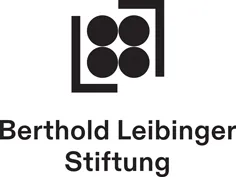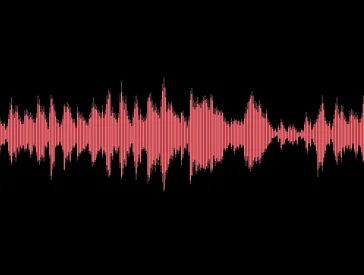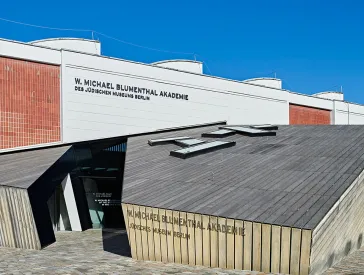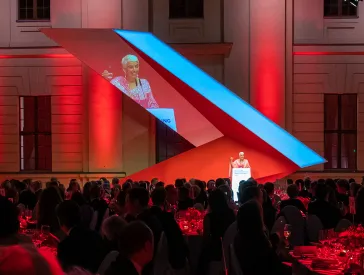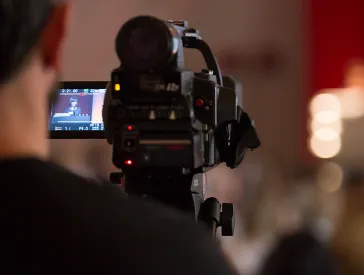
Déjà-vu? A New Search for Old Answers
Online Lecture and Discussion with Ofer Waldman and Moshe Sakal (video recording available)
In the second lecture, Ofer Waldman and Moshe Sakal explore the life and legacy of Magnus Hirschfeld. The focus will be on Hirschfeld as a Jewish intellectual, doctor and sexologist who championed the rights and acceptance of minorities. His groundbreaking research and activism, along with his Jewish identity, led to persecution by the Nazi regime and ultimately forced him into exile. In conversation with Ofer Waldman, Sakal will offer a personal perspective on Hirschfeld, reflecting on the ways in which Hirschfeld’s ideas still influence our understanding of sexuality and Jewish identity today.
Video recording from 12 Jun 2025; Jewish Museum Berlin 2025
The digital lecture series examines Jewish intellectuals of the nineteenth and early twentieth century and asks what long-overlooked answers their work might offer to the current challenges of Jewish life in Germany.
We invite four intellectuals from the social sciences and literature to answer the question: Which historic texts do they return to for answers to pressing present-day questions? And how do they read these texts?
Moshe Sakal
Moshe Sakal is an accomplished author and the co-founder of Altneuland Press, the first international Hebrew publishing house based in Berlin. His six Hebrew-language novels explore themes such as exile, migration, diaspora, queer life, transcending temporal and spatial boundaries, and the impact of technology on culture. Sakal is a two-time Sapir Prize nominee, a winner of the Eshkol Prize, and an Honorary Fellow at the University of Iowa. He publishes regularly in the Frankfurter Allgemeine Zeitung, Le Monde, Haaretz and Sinn und Form. Sakal was awarded a Berlin Senate Literature Grant for his book project nachs.
Moshe Sakal; photo: Shai Levy
Ofer Waldman
Since summer 2025 Ofer Waldman is head of the Heinrich Böll Foundation’s office in Tel Aviv. Born in Jerusalem, he moved to Berlin in 1999 as a member of Daniel Barenboim’s West-Eastern Divan Orchestra and played among others in the German Symphony Orchestra Berlin, the Nuremberg Philharmonic Orchestra and the Israel Philharmonic Orchestra. Waldman received his doctorate from the Free University of Berlin (German Studies) and the Hebrew University of Jerusalem (Jewish History). He is a freelance author and journalist. In 2021, he and Noam Brusilovsky won the ARD German Radio Play Award for the radio play Adolf Eichmann: Ein Hörprozess (roughly: Adolf Eichmann: An Audio Trial) (RBB/DLF). His literary debut, Singularkollektiv. Erzählungen (Singular Collective: Stories), was published by Wallstein Verlag in 2023, and in 2024 Suhrkamp published his correspondence with Sasha Marianna Salzmann about the world after 7 October under the title Gleichzeit (roughly: Sametime). His new book Verkämpftes Land. Beobachtungen (roughly: A country torn apart. Observations) was just published with Wallstein.
Ofer Waldman; photo: Bernd Brundert
Digital Events: Our Netiquette
Time and again, opinions are radicalized and conflicts are fueled in virtual spaces. The anonymity of communication makes it easy to forget that verbal or written attacks can be hurtful to those affected. The Jewish Museum Berlin strives to be a discrimination-free space. Please adhere to the following principles:
- Depending on the format, you can participate with questions and discussion contributions in writing or orally.
- Written contributions will be reviewed, approved, and presented by a moderator.
- Please keep your comments short and concise so that there is room for as many audience contributions as possible.
- Please register with your real name.
- Please express yourself respectfully and responsibly.
- Anti-Semitic, racist, sexist, or otherwise discriminatory comments will not be tolerated.
- Speakers and participants should be treated as individuals with personal opinions, not primarily as representatives of a national, ethnic, religious, or cultural group.
- Links to websites that glorify violence or are relevant under criminal law will be deleted immediately.
- In the event of repeated violations of netiquette, we reserve the right to exclude you from the event.
Recording (including screenshots) and distributing the event or parts thereof, including the materials used, is not permitted. We record the event.
Das Aufzeichnen (auch durch Screenshots) und Verbreiten der Veranstaltung oder Teilen davon, einschließlich der verwendeten Materialien, ist unzulässig. We will record the event and make it available online afterwards. For more details, please refer to our privacy policy.
Updated on 14 April 2025
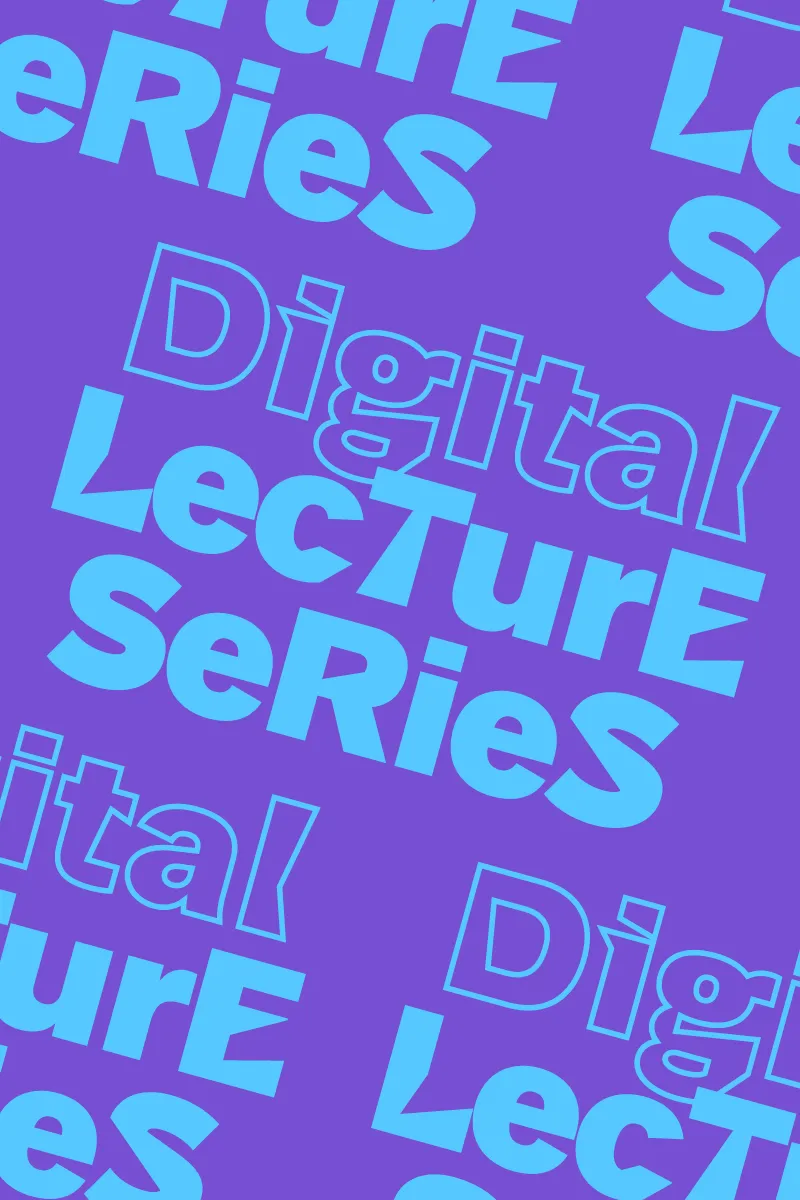
Digital Lecture Series
Déjà-vu? A New Search for Old Answers
Déjà-vu? A New Search for Old Answers
Digital Lecture Series Déjà-vu? A New Search for Old Answers: The event series at a glance
Digital Content
- Online Lecture and Discussion with Ofer Waldman and Delphine Horvilleur: Video recording from 22 May 2025
- Current page: Online Lecture and Discussion with Ofer Waldman and Moshe Sakal: Video recording from 12 Jun 2025
- Online Lecture and Discussion with Ofer Waldman and Yael Kupferberg: Video recording from 25 Sep 2025, in German
- Online Lecture and Discussion with Ofer Waldman and Eva Illouz: Video recording from 16 Oct 2025
- Online-Lecture und Gespräch with Ofer Waldman and Liliane Weissberg: Video recording from 11 Nov 2025, in German
We would like to thank the Berthold Leibinger Stiftung for supporting the Digital Lecture Series.
